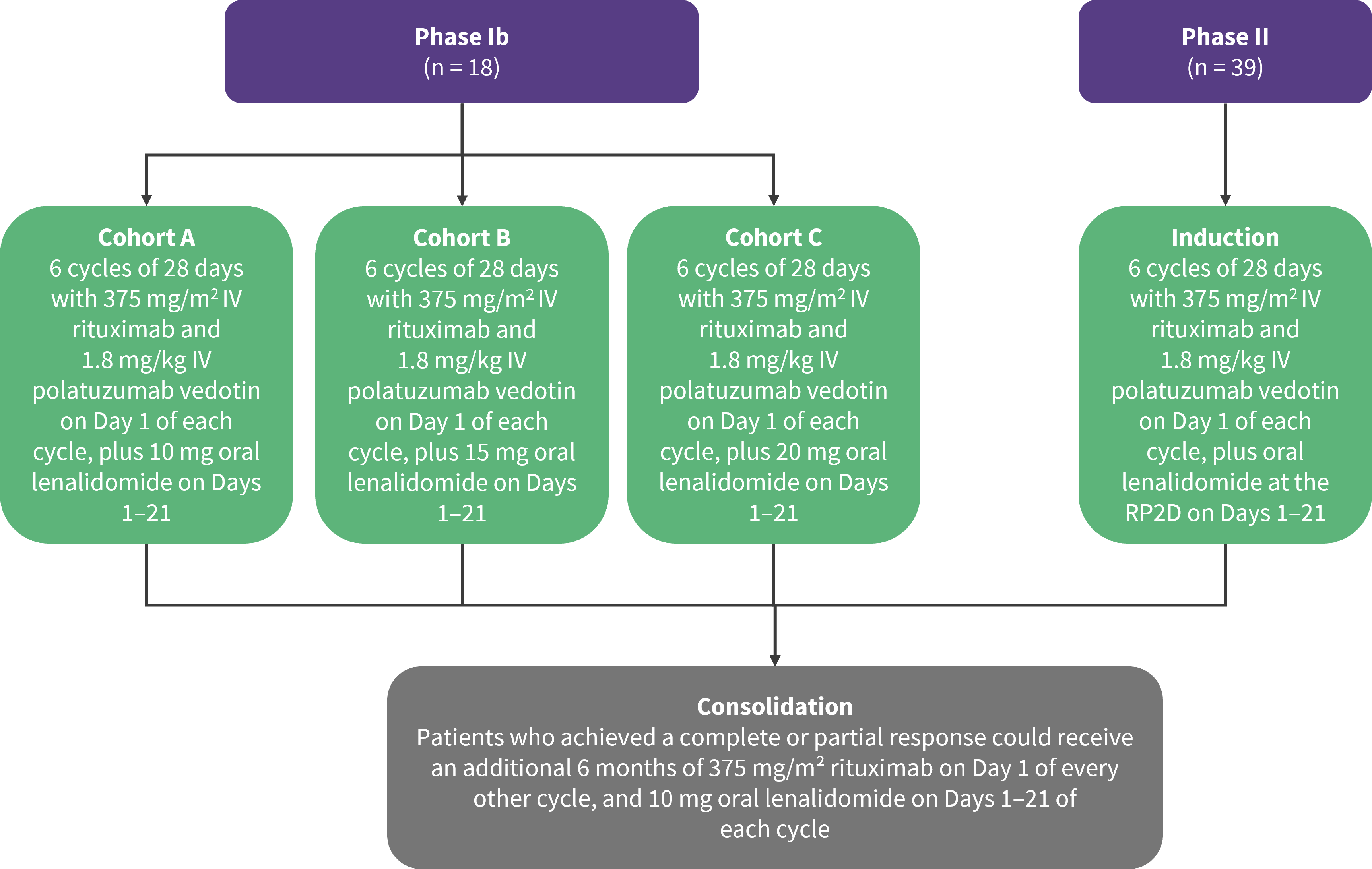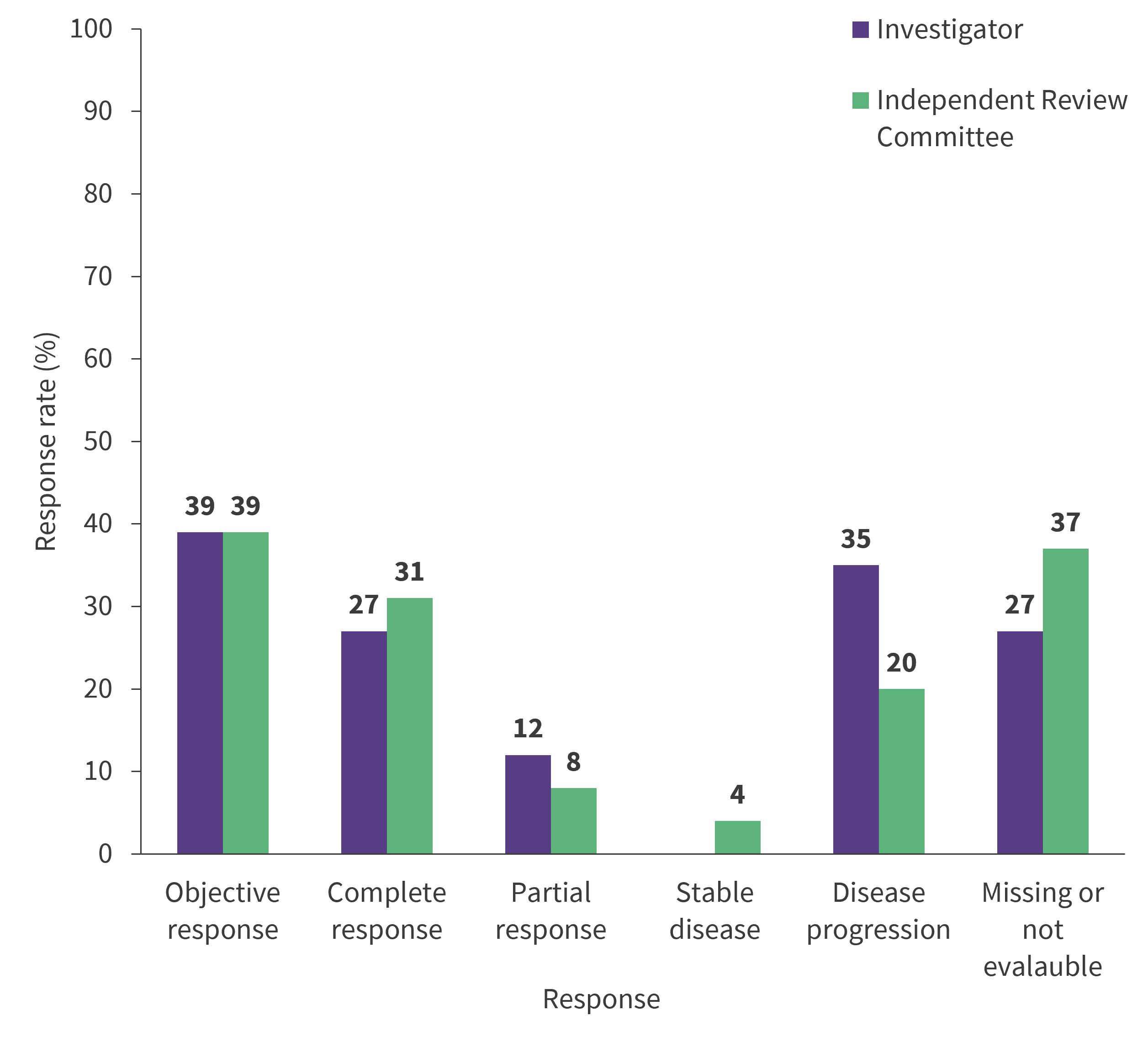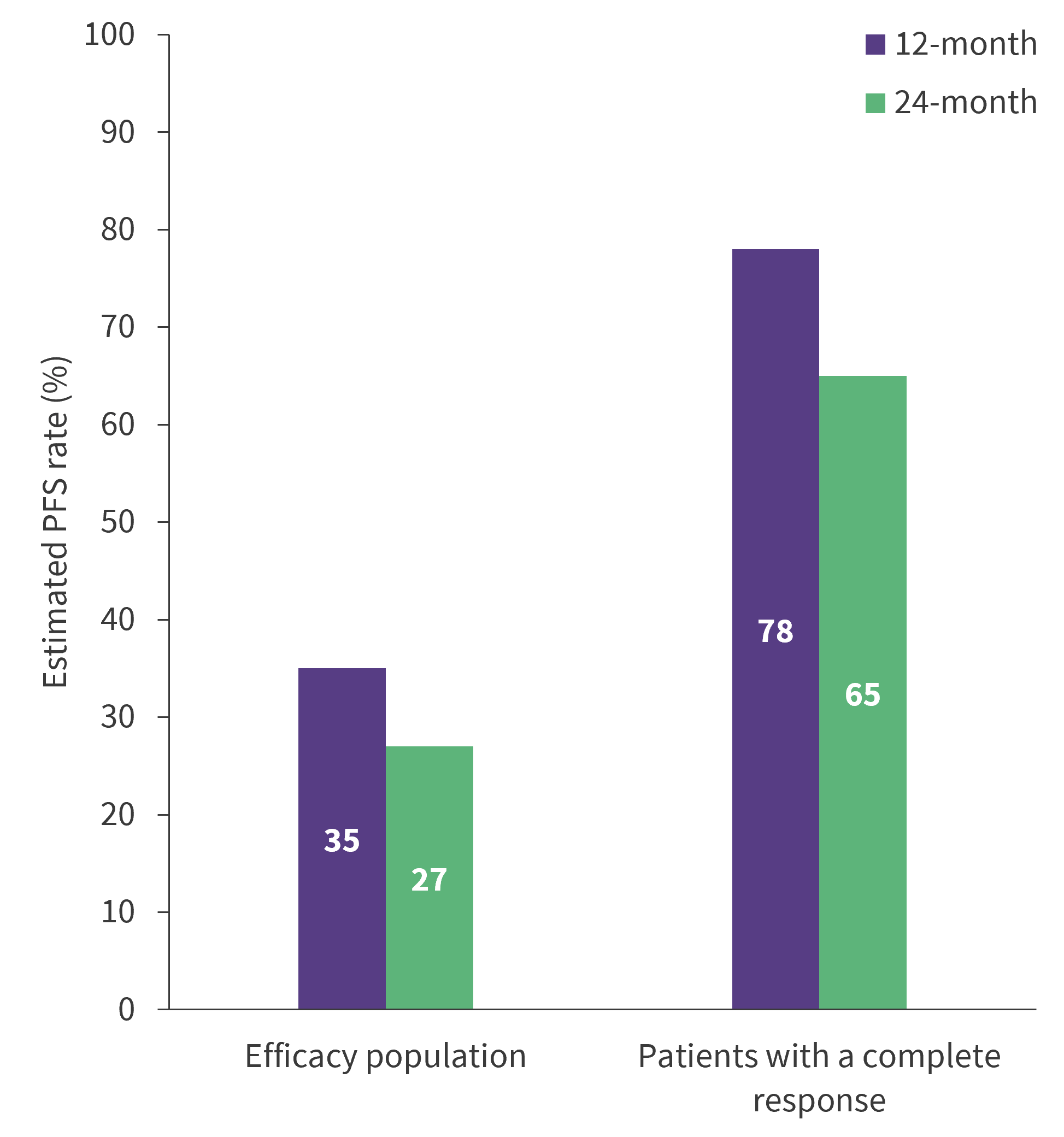All content on this site is intended for healthcare professionals only. By acknowledging this message and accessing the information on this website you are confirming that you are a Healthcare Professional. If you are a patient or carer, please visit the Lymphoma Coalition.
The Lymphoma Hub uses cookies on this website. They help us give you the best online experience. By continuing to use our website without changing your cookie settings, you agree to our use of cookies in accordance with our updated Cookie Policy
Introducing

Now you can personalise
your Lymphoma Hub experience!
Bookmark content to read later
Select your specific areas of interest
View content recommended for you
Find out moreThe Lymphoma Hub website uses a third-party service provided by Google that dynamically translates web content. Translations are machine generated, so may not be an exact or complete translation, and the Lymphoma Hub cannot guarantee the accuracy of translated content. The Lymphoma Hub and its employees will not be liable for any direct, indirect, or consequential damages (even if foreseeable) resulting from use of the Google Translate feature. For further support with Google Translate, visit Google Translate Help.
Polatuzumab vedotin in combination with venetoclax and rituximab for patients with R/R DLBCL
Bookmark this article
Patients with released/refractory (R/R) diffuse large B-cell lymphoma (DLBCL) who are ineligible for transplant have limited treatment options and a poor prognosis; however, novel combination therapies may improve outcomes.1 Polatuzumab vedotin, an antibody-drug conjugate targeting CD79b, is being evaluated in combination with several other agents for the treatment of patients with R/R DLBCL.1 The Lymphoma Hub previously covered outcomes of polatuzumab vedotin in combination with venetoclax and rituximab and primary analysis results from the phase Ib/II GO29834 trial (NCT02600897) investigating the combination of polatuzumab vedotin, rituximab, and lenalidomide in patients with R/R DLBCL. Here, we summarize the results from the GO29834 trial, published by Abrisqueta et al.1 in Lancet Haematology.
Study design1
- This was an open-label, multicenter, phase Ib/II trial (Figure 1)
- The primary safety and efficacy outcomes were the maximum tolerated dose of lenalidomide and the complete response rate, respectively
Figure 1. Phase Ib/II GO29834 trial design*

IV, intravenous; RP2D, recommended phase II dose.
*Data from Abrisqueta, et al.1
Key findings1
- In total, 57 patients were included (phase Ib, n = 18; phase II, n = 39) with a median age of 71 years.
- The efficacy cohort (n = 49) included patients from cohort C (n = 10) of the phase Ib portion and patients from the phase II portion (n = 39), while the safety cohort included all patients (n = 57); median follow-up was 11.8 months.
Phase Ib
- No dose-limiting toxicities were observed
- One patient in cohort C had a fatal adverse event (AE) deemed unrelated to the study treatment
- 20 mg lenalidomide was chosen as the recommended phase II dose
Safety
- Overall, 98%, 77%, and 40% of patients experienced ≥1 any grade, Grade 3–4, and serious AEs, respectively.
- The most common Grade 3–4 AEs were neutropenia (61%), and thrombocytopenia (14%).
- The most common serious AEs were infection (18%), pyrexia (18%), and tumor flare (4%).
- Overall, 35 patients died, most commonly due to disease progression (n = 26) and AEs (n = 5).
- One patient died due to a treatment-related AE (neutropenic sepsis).
Induction response
- Induction response rates are shown in Figure 2
- Median duration of response was 9.3 months
Figure 2. Induction response rates in the efficacy population (n = 49) using modified Lugano criteria*

*Data from Abrisqueta, et al.1
Survival outcomes
- Median progression-free survival (PFS) and overall survival were 6.0 months and 11.9 months, respectively.
- Among patients with a complete response, median PFS and overall survival were not reached.
- Estimated 12- and 24-month PFS rates are shown in Figure 3.
Figure 3. Estimated 12- and 24-month PFS rates*

PFS, progression-free survival.
*Data from Abrisqueta, et al.1
| Key learnings |
|
- Abrisqueta P, González-Barca E, Panizo C, et al. Polatuzumab vedotin plus rituximab and lenalidomide in patients with relapsed or refractory diffuse large B-cell lymphoma: a cohort of a multicentre, single-arm, phase 1b/2 study. Lancet Haematol. 2024;11(2):e136-e146. DOI: 1016/S2352-3026(23)00345-9

Understanding your specialty helps us to deliver the most relevant and engaging content.
Please spare a moment to share yours.
Please select or type your specialty
 Thank you
Thank youRelated articles
Newsletter
Subscribe to get the best content related to lymphoma & CLL delivered to your inbox








